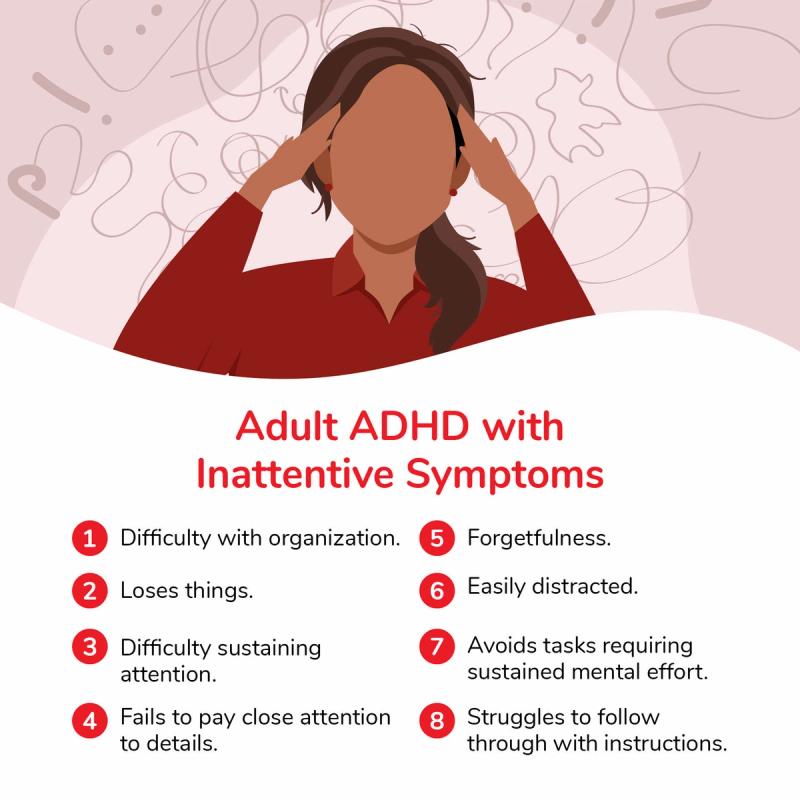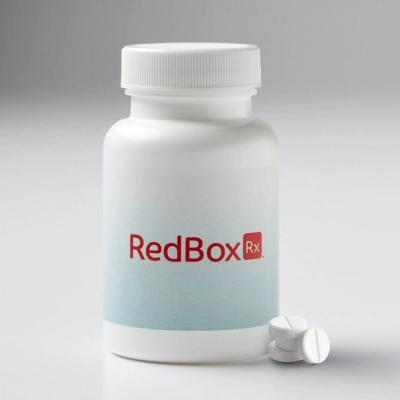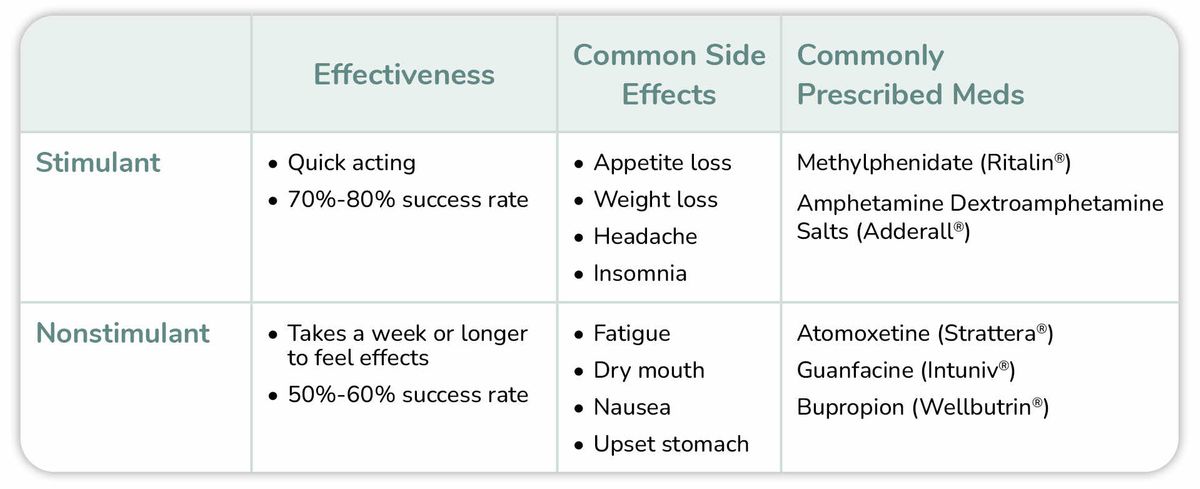Until recently, ADHD was considered a childhood-onset neurodevelopmental disorder that presented symptoms early in life. Research is expanding to better diagnose adult-onset ADHD, both as a continuation of childhood ADHD and as a condition that newly develops in adulthood.
Living with adult ADHD can be challenging, but with the right course of treatment, you can still live a productive and fulfilling life. Learn more here about the symptoms, research and treatment options for adult-onset ADHD.
Key Takeaways
Adult-onset ADHD is a diagnosis made for the first time in adulthood. Research shows symptoms can emerge later in life, and many adults remain undiagnosed or untreated.
The disorder appears in adults as predominantly inattentive (disorganization, distractibility, forgetfulness), hyperactive-impulsive (restlessness, interrupting, acting without thinking) or a mixed pattern.
Stimulants relieve symptoms within an hour but pose misuse and insomnia risks. Nonstimulants, such as atomoxetine or guanfacine, work more slowly, carry lower abuse potential and are available through RedBox Rx. The most effective treatment combines skills-based therapy with medication.
What is adult-onset (late-onset) ADHD?
Adult-onset ADHD, or late-onset ADHD, is the diagnosis of attention deficient hyperactivity disorder (ADHD) in adulthood. The condition is often diagnosed in childhood, but as many as 90% of adults diagnosed with ADHD show no history of symptoms in childhood, based on recent studies.1
Children diagnosed with ADHD can continue to experience symptoms into adulthood. It’s estimated that around 60% of children diagnosed with ADHD still exhibit symptoms as an adult.2
An estimated 8 million Americans, up to five percent of the population, have adult ADHD. Studies suggest that less than 20% of adults with ADHD are undiagnosed and unaware they have the condition. For those with adult ADHD diagnosis, only around one-fourth are currently getting treatment.3
What research has been done on adult-onset ADHD?
ADHD is generally considered a childhood-onset neurodevelopmental disorder and has been studied as such for many years. Adult-onset, or late-onset, ADHD is now being studied as a different condition. As more research is being done, beliefs are shifting around adult ADHD diagnosis and its relationship to childhood ADHD diagnosis.
For example, it was widely accepted that children diagnosed with ADHD could outgrow their symptoms into adulthood. Research shows that symptoms can last well into adulthood or not appear until adulthood. Studies are growing but remain limited when it comes to understanding adult-onset ADHD.4
What are the signs and symptoms of ADHD in adults?
Adult ADHD presents itself mainly in two forms: predominantly inattentive presentation and predominantly hyperactive-impulsive presentation. There are also some individuals that present a combination of both. Symptoms for the two forms of ADHD can differ.

Common symptoms of adult ADHD with predominantly inattentive presentation:5
Fails to pay close attention to details or makes careless mistakes.
Difficulty maintaining attention.
Struggles to follow through with instructions.
Difficulty with organization.
Avoids or dislikes tasks requiring sustained mental effort.
Loses things.
Easily distracted.
Forgetfulness.

Common symptoms of adult ADHD with predominantly hyperactive-impulsive presentation:6
Fidgets with hands or feet, or squirms in chair.
Difficulty remaining seated.
Extreme restlessness in adults.
Difficulty engaging in activities quietly.
Talks excessively.
Blurts out answers before questions have been completed.
Difficulty waiting or taking turns.
Interrupts or intrudes upon others.
How symptoms can differ between men and women
Adult ADHD symptoms can present differently in men and women. Men are diagnosed and referred for ADHD treatment more than women. Research suggests this could be because of the way ADHD symptoms present differently based on gender. Women more often show symptoms of predominantly inattentive presentation, while men are more likely to show symptoms of predominantly hyperactive-impulsive presentation.7
Effects of untreated ADHD
Untreated ADHD in adulthood can have serious consequences. Adults with untreated ADHD are more likely to have trouble maintaining employment and can struggle with:8
Time management and getting to work on time.
Meeting deadlines.
Staying organized.
Getting along with co-workers.
Accepting criticism calmly.
Untreated adult ADHD can also negatively affect interpersonal relationships. Symptoms of ADHD make it difficult to control emotions and listen carefully. Adults with untreated ADHD are more likely to get divorced as well.9
Additional mental health issues can arise when adult ADHD is left untreated. Rates of substance abuse, risky sexual behavior, depression and low self-esteem are all prevalent in adults with untreated ADHD.10
It is important to seek treatment if you are experiencing symptoms of ADHD to avoid unintended and potentially harmful behavior from emerging or continuing.
How is adult ADHD diagnosed?
According to the American Psychiatric Association in the Diagnostic and Statistical Manual of Mental Disorders, Fifth Edition (DSM-5), adults should present at least five of the recognized symptoms to receive an ADHD diagnosis. Symptoms should also be severe enough to interfere with an individual’s life like negatively affecting work or relationships.11
Getting tested for ADHD
If you suspect you might have ADHD, you can get tested for ADHD from an experienced professional. A licensed professional will ask questions about your symptoms, the impact on your life and your personal history to see if you meet the criteria for an adult ADHD diagnosis.12

Convenient, affordable adult adhd treatment on your schedule.
Your mental health is important. RedBox Rx offers secure, private online consultations with licensed providers focused on patient outcomes.
Get StartedHow is adult ADHD treated?
Treatment options for adult ADHD include medication, education, counseling and skills training. A combination of treatments is often the most effective. There is no cure for adult ADHD, but symptoms can be managed for a better quality of life.13
ADHD Medication Types
There are two types of medication prescribed to treat adult ADHD: non-stimulant. Stimulant medications containing methylphenidate or amphetamine are the most prescribed. They boost and balance neurotransmitters in the brain. Most prescribed non-stimulant medications include atomoxetine and certain antidepressants such as bupropion. Non-stimulant options work slower than stimulants, but have fewer side effects.14
Stimulant vs. Non-stimulant Adult ADHD Medications

How RedBox Rx Can Help

RedBox Rx makes receiving adult ADHD treatment easy and affordable. We offer secure, private online consultations with licensed providers focused on your health.
Benefits of RedBox Rx include:
Transparent, affordable, flat rates. Medications for $25 per month (with purchase of three-month supply).
$35 consultations with a U.S. licensed medical professional.
No insurance required. No membership fees. FSA and HSA eligible.
No office wait times or scheduling issues typical with physical medical practices.
FREE shipping directly to you. Monthly and quarterly subscriptions available.
Get started on your adult ADHD treatment journey with our online assessment.


